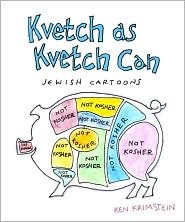Cartoons can be a powerful medium for self-reflection. Particular types of comics force the reader to disassociate him- or herself from the childish connotation comics have been given in the popular imagination; comics aren’t simply meant to entertain, although they often do that. At their most didactic, comics elucidate matters of contemporary concern in ways that are more accessible, more artistic, and more acerbic than print (traditional or digital) can convey alone. And when it comes to the manifold issues that affect modern Jewish life — especially Jewish continuity and practice, and the Israeli-Palestinian issue — no one better encapsulates the pettiness, grandstanding, and internecine paranoia than Eli Valley.
Indeed, Valley’s new collection of comics and illustrations, Diaspora Boy: Comics on Crisis in America and Israel, is as much a blunt instrument as it is a carefully-crafted mirror on Jewish communal affairs. Valley cracks the veneer of perceived elites in modern Jewish and Zionist-oriented organizations who bloviate and draw attention to themselves rather than opportunities for dialogue and mutual understanding.
In the book’s preface, Valley writes a telling line: “I do think the freedom to pillory powerful people, organizations, and ideas within the Jewish community is shrinking — almost as if the American Jewish community is beginning to mirror Israeli political culture in the flight from the democratic norms.” Indeed, the many real-life (and well-known) figures and Jewish movements that appear in the book aren’t spared from Valley’s vision of their malfeasance — rightly or wrongly — in pursuing interests that are perceived detrimental to the normative, ethical vision of Judaism.
Valley’s art acts as the great equalizer, a spear to the heart of entrenched interests that do nothing to move the Jewish community forward in meaningful ways. He does not spare anyone on the political spectrum, right or left (though the latter is depicted more often), from the holy vituperation of his pen and paper excoriations. But his expansively-composed illustrations — reminiscent of both the underground work of R. Crumb and the anarchic surreality of MAD with the whimsy of Chagall thrown in for good measure — not only shake foundations, but also provide the rare opportunity for individual/communal self-reflection.
Undoubtedly, Valley’s corpus of work collected in Diaspora Boy is designed to make the reader uncomfortable (this author included). Anyone who supports the Zionist enterprise — whether they are liberal or conservative — may find the comics contained within this volume difficult to read and internalize. That is the point. Valley’s comics can be cruel, but the issues he depicts are just as cruel. And through it all, he tackles his subjects with honesty and an astute understanding of their core essence. While many may not realize it or refuse to believe it, the Jewish community needs these nonconformist voices more than ever.



